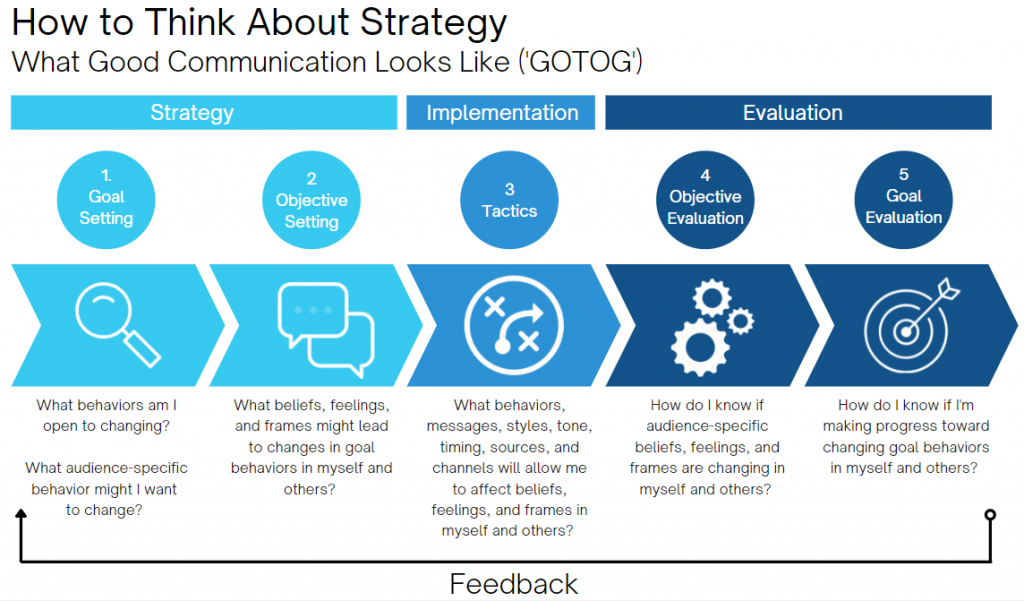The core idea behind our research is that science communicators will benefit if they think more carefully about what long-term behavioral goals they hope to achieve from the time, money, and other resources they put into communication. These goals might involve changing the behaviors of others or themselves.
Starting with concrete goals can then allow communicators to use social science-evidence to identify potential, near-term communication objectives that would allow them to achieve their goals. These objectives include a range of beliefs, feelings, and frames. Explicit identification of goals and objectives also enable evaluation.
We cannot rely on past goodwill and self-selected spokespeople for science to ensure that our communities turn to science when faced with challenging questions.
